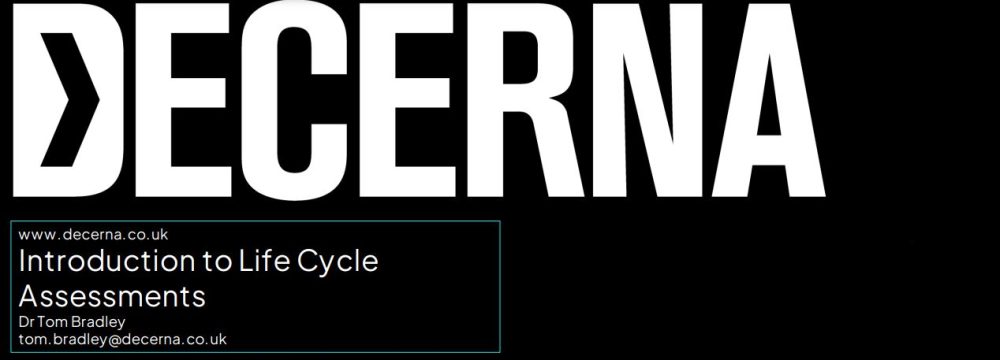Introduction to LCA by Decerna: A Practical Workshop

Written by Cathal Burns, PhD Student, Northumbria University.
In September 2023, Newcastle University played host to the UKRI Circular Chemical Economy Summer School. Numerous colleagues from both industry and academia came together to share plans and ideas for closing the carbon loop in respective fields. Personal highlights of the event were talks given by Professor Jeremy Sears (Shell) and Dr Linsey Fuller (Procter & Gamble), where they outlined how these two global companies are leading by example by changing key aspects of their businesses to ensure a faster transition to a circular chemical economy.
Another fascinating session was given by Dr Tom Bradley (Director, Decerna) who began with a talk on an introduction to life cycle assessments (LCA). He began his talk with three case studies on recycling wind turbine blades, carbon capture and utilisation, and food waste utilisation. He enthusiastically explained that LCA is not simply about deciding whether an emerging technology is good or bad. The idea is to understand the bottlenecks in terms of environmental impact and cost. He went on to tell the audience about the first reported use of LCA, by Coca Cola in 1969. Since then, a plentiful amount of LCA technologies have been developed and nowadays various supporting documents for LCA exist. However, it is clear that ensuring LCA studies are carried out and reported in a standardized method is crucial.

After his talk, Tom then gave a fascinating and informative workshop on using OpenLCA software to evaluate emerging technologies and processes. LCA is of particular interest to me as an early career researcher. I am currently beginning my 2nd year as a PhD student at Northumbria University. My research involves developing new systems which are capable of converting CO2, sunlight, and water into value-added chemicals for use in fuels or in consumer products. We achieve this through a process known as “semi-artificial photosynthesis” mimicking natural photosynthesis that occurs in plants and cyanobacteria. We use a combination of semiconducting light-absorbing materials and electrotrophic bacteria which can metabolise CO2, H2, and electrons to produce liquid products. This is an emerging technology and therefore LCA is a pivotal tool that can provide key information of the bottlenecks in achieving scale-up of this technology.